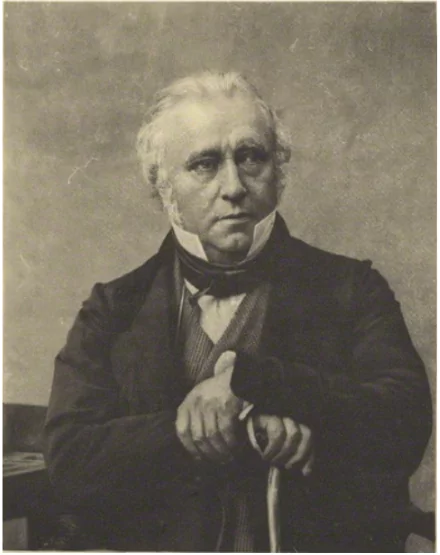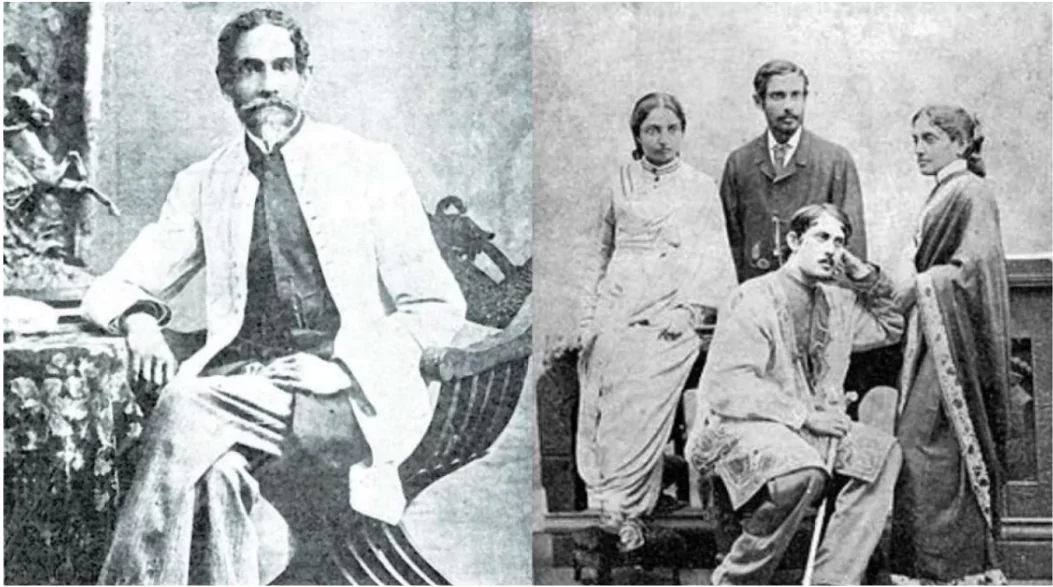
Indian Civil Service (ICS) has been the backbone of governance in India since colonial times and continues to shape the nation’s administrative framework post-independence. Regarded as one of the most prestigious services, the Indian Civil Service represents a mechanism that administers and implements the laws and policies of the government.
Interested candidates must read on to get a detailed overview of what is Indian Civil Service, its historical evolution, structure, and role in contemporary India, while incorporating essential historical and technical facets.
Indian Administrative Service (IAS)
The Indian Civil Service refers to a body of permanent officials who are selected through a strict competitive examination and are responsible for the civil administration of the country. These officials are involved in the planning, formulation, and implementation of government policies at the union, state, and district levels.
The ICS full form is Indian Civil Service. Initially a colonial instrument, the ICS has transformed over time into a pillar of democratic governance in India.
| Indian Civil Service Overview | |
| Feature | Details |
| Name | Indian Civil Service (ICS) |
| ICS Full Form | Indian Civil Service |
| Introduced By | The British Government through the Charter Act of 1853 |
| Reformed By | Lord Charles Cornwallis (Known as the Father of Civil Service in India) |
| First ICS Exam in India | 1922, held in Allahabad |
| First Indian ICS Officer | Satyendranath Tagore (Joined in 1863) |
| Purpose (Colonial Era) | Administration and consolidation of British rule |
| Post-Independence Transformation | Replaced by IAS, IPS, and IFS in 1947 |
| Present Conducting Body | Union Public Service Commission (UPSC) |
| Examination Structure | Preliminary Exam → Mains Exam → Interview |
| Modern-Day Services | IAS, IPS, IFS, IRS, and other Central & State Services |
| Role in Governance | Policy implementation, public administration, and national development |
The ICS full form is Indian Civil Service. Originally established under British rule, the ICS represented the highest-ranking administrative cadre in colonial India. It was known for its rigid entry requirements, high prestige, and important role in implementing imperial policies across the subcontinent. Today, the term holds historical significance, as it laid the foundation for the modern Indian Administrative Service (IAS) and other civil services that function under the democratic framework of the Republic of India.
The Indian Civil Service history is deeply rooted in the colonial era. The system was introduced to consolidate British power in India and efficiently administer its vast territories. The civil service started in India by which act can be traced back to the Charter Act of 1853, which first introduced a competitive examination system for recruitment.
| Indian Civil Service History | ||
| Year/Period | Event/Reform | Description |
| 1786–1793 | Lord Cornwallis’s Reforms | Introduced Europeanisation of services, strict regulations against bribery, increased salaries, and structured departmental duties. Known as the Father of Civil Service in India. |
| 1793 | Charter Act of 1793 | Defined service rules; restricted civil posts to Company’s servants; age limit raised to 22; foreigners barred. |
| 1800 | Fort William College | Founded by Lord Wellesley to train civil servants in India, later replaced by Haileybury College in England. |
| 1833 | Charter Act of 1833 | Recommended limited competitive exams but appointments continued through nomination. |
| 1853 | Charter Act of 1853 | Introduced open competitive examination system for ICS selection. |
| 1854 | Macaulay Committee Report | Recommended merit-based recruitment through competitive exams held in London. Set age limit and syllabus. |
| 1855–1856 | First ICS Exam | Conducted in London under the Board of Control; first successful candidates entered service in India. |
| 1861 | Indian Civil Service Act | Allowed Indians with 7 years of residence in India to be appointed to civil posts (limited implementation). |
| 1870 | Statutory Civil Service Proposal | Attempted inclusion of Indians; 1/5th of posts reserved for Indian natives (unsuccessful in impact). |
| 1879 | Statutory Civil Service | Created a separate service for Indian recruits with limited authority. |
| 1885 | Indian National Congress Resolution | Demanded simultaneous ICS exams in England and India. |
| 1886 | Aitchison Commission | Abolished Statutory Civil Service; divided services into Imperial, Provincial, and Subordinate. |
| 1912 | Islington Commission | Recommended 25% reservation for Indians in higher posts; supported separate recruitment exams in India and England. |
| 1919 | Government of India Act | Formally introduced All India Services concept; protections granted to civil servants. |
| 1922 | First ICS Exam in India | Held under Civil Service Commission; selected candidates trained in England. |
| 1923 | Lee Commission | Advocated for classification into All India, Central, and Provincial Services; recommended balanced Indianisation. |
| 1935 | Government of India Act | Protected rights and salaries of civil servants; set up Public Service Commissions at federal and provincial levels. |
| 1947 | ICS after Independence | ICS renamed as IAS (Indian Administrative Service); framework retained under new Indian constitution. |
| 1950 | Constitution of India | Article 312 provided for the creation of All India Services such as IAS and IPS. |
| 1951 | First UPSC Civil Services Exam | Conducted post-independence for Indian citizens under the Union Public Service Commission (UPSC). |
UPSC Eligibility Criteria 2025
The British were responsible for introducing the Indian Civil Service in India, primarily through Lord Cornwallis, who is often referred to as the father of civil service in India. His administrative reforms between 1786 and 1793 laid the groundwork for a structured and disciplined bureaucracy.

The Indian Civil Service was formally introduced by the Charter Act of 1853, which removed the system of patronage and introduced open competition for recruitment. This act marked a turning point in British India’s administrative history, laying the foundation for a modern civil service.
The Charter Act of 1853 officially initiated the Indian Civil Service in its recognisable form. Following this, the Macaulay Committee (1854) was established to design the examination system and entry criteria. This Act and subsequent reforms structured civil administration on merit and professional competence.

Source: Wikipedia
The early civil service in India was composed mainly of British officials. The first ICS exam held in India took place in 1922 in Allahabad, marking a significant milestone towards Indianisation. The first ICS officer of India was Satyendranath Tagore, who joined the service in 1863, blazing the trail for other Indians.
Several reforms helped shape the ICS:
Until 1922, ICS exams were conducted only in London, which limited Indian participation. However, under the Montague-Chelmsford Reforms (Government of India Act, 1919), the first ICS exam held in India took place in Allahabad in 1922. This marked a crucial step toward making the civil services more inclusive for Indians.
Satyendranath Tagore became the first Indian to qualify for the Indian Civil Service in 1863. He was a reformer, linguist, and elder brother of Rabindranath Tagore. His induction symbolised the early steps toward Indian representation in the higher echelons of administration.

Source: DNA India
Post-1947, the ICS after independence underwent significant transformation. The British-era ICS was abolished and replaced by:
After 1947, the ICS was succeeded by the Indian Administrative Service (IAS), Indian Police Service (IPS), and Indian Forest Service (IFS) as the new All India Services under Article 312 of the Indian Constitution.
The Union Public Service Commission (UPSC) conducts the Civil Services Examination (CSE) every year. It is one of the toughest examinations globally and serves as the gateway to several key administrative services:
The examination is conducted in three stages:
This examination process takes nearly a year and tests candidates on diverse subjects, including current affairs, polity, economy, ethics, and essay writing.
ICS after independence underwent a transformational change. With the establishment of the IAS, the colonial nature of the service was replaced with a democratic and development-oriented character. The focus shifted from revenue collection and law enforcement to policy formulation, welfare implementation, and public administration.
The Government of India Act, 1935 and subsequent adoption of the Indian Constitution in 1950 formally established a framework for independent civil services with emphasis on federal structure, merit-based selection, and constitutional safeguards.
The Indian Civil Service continues to play a pivotal role in the nation’s governance and development:
UPSC Previous Year Question Papers (PYQs)
The journey of the Indian Civil Service from colonial beginnings to democratic transformation reflects India’s broader political and administrative evolution. While the ICS was originally designed to uphold British imperial interests, post-independence civil services aim to uphold democratic values and serve the people. From the Indian Civil Service to the first ICS officer of India, every aspect of this legacy continues to shape modern India. The ICS, after independence, has grown into a symbol of accountability, integrity, and excellence in governance.
Ready to boost your UPSC 2025 preparation? Join PW’s UPSC online courses today!
<div class="new-fform">
</div>
